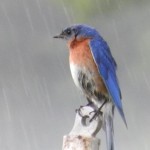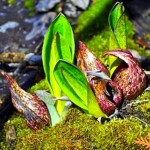 The love of greenhousing began when I was very young. I remember being carried on my mother’s hip along a cobble-stoned path that ran the length of the greenhouses—my family had an acre under glass. We walked through the warm and humid houses, past benches of colorful flowers. I would breathe an air unpolluted by cigarette smoke and diesel fumes.
The love of greenhousing began when I was very young. I remember being carried on my mother’s hip along a cobble-stoned path that ran the length of the greenhouses—my family had an acre under glass. We walked through the warm and humid houses, past benches of colorful flowers. I would breathe an air unpolluted by cigarette smoke and diesel fumes.
Even when days were cloudy the world within seemed bright. Flowers and verdant greens illumined the space and gave energy to what was dull and dim. It was the Creator’s peace of silent living things.
A greenhousing memory of peace surfaced from when I was five and my father in his early thirties. He was working at transplanting seedlings, and I was working at displacing fear.
In a smaller single greenhouse wooden benches formed a U against the outer cinderblock walls. In the center was a long narrow bench. I was little and could walk straight on down the aisle between, but father—a muscular and fit 5’ 4”—had to scooch sideways in a step-drag motion.
Father was often silent and brooding. He was jovial with employees, clients, and suppliers but rarely as animated with his family. The only sound that late-winter day was the clack and pop from overhead steam pipes.
The man barely acknowledged my presence as I pushed a crate from under the cobwebbed bench to within inches of his leg. I wanted to be near him. I loved my father and was terrified of his bursts of violence.
The section of bench in which he worked was filled with perlite beads that reminded me of snow. Lines of seedlings ran perpendicular across the bench in plump tangled ribbons of green. On a plank that rested on the edges of the bench he’d set one of several wooden flats–made earlier “out-back” and filled with potting soil.
His thick calloused fingers, some split at the tip, pushed easily into the sand-like beads and under the roots of seedlings. He would place his thumb on the side of an inch or two of watery stems and pull gently up. He deftly teased apart fragile seedlings and never broke a single hair-like root. Those same hands could with rapid fire movement draw his belt from pant loops and leave a child tattooed for days with welts and bruises.
With his pinky finger he plunged a hole in the flat of soil, and twirling a seedling placed its roots within. With the two fingers that previously held the tiny plant he would pinch the soil about the stem. Occasionally I would dare to glance at his sun-tanned face—from a child, a gesture of insolence. Mostly I focused on his hands. I wanted to believe that his gardener’s hands that so carefully touched plants could be just as gentle with me.
Methodically my father worked. He pulled seedlings, filled flats, stepped sideways down the aisle and lined the trays along the south wall. I remained at his side through the silent afternoon and mimicked his busy hands. I put my fingers into the perlite and pushed about the powdery beads. I plucked leaves from nearby potted plants and tucked them into the artificial soil in lines as far as my arms could reach. I pretended they would grow. I imagined them mature. I expected to be scolded.
Stepping down from my perch I went to the moss covered spigot and filled my pink Tupperware glass with water. Back up, I leaned against the wooden bench and dribbled water over the leaves. The perlite drew down. Having watched my father do the same, I knew I had watered enough.
The dozens of flats filled were watered in. When my father walked back with the hose I knew the work was done. I got off of the crate and pushed it under the bench. Reaching over my head I grabbed my empty pink cup and headed for the door.
My father was not following. I looked over my shoulder and saw he was straightening the leaves of my endeavor instead of pulling them out. I had planted in my father’s house and felt pleased.
As a child I didn’t understand that I was not the cause of his violence. Nor was I capable of ever being “good enough” to prevent his outbursts or earn his love.
What I am left with is a questioning—if he could manage plants with gentle attentiveness, why not his children?
I was one in the fourth generation of growers and, though not one of his sons, managed to learn about greenhousing by watching him work. One legacy I chose not to continue was his violence.
The Lord promised to show mercy, especially to those most in need. I prayed this for my father, that he be freed from his torments while he lived, and that he rest in eternal peace. I look forward to the day in heaven when my gardener’s hands will finally embrace his.
(Image by arrowpedigree, morgufile.com.)











